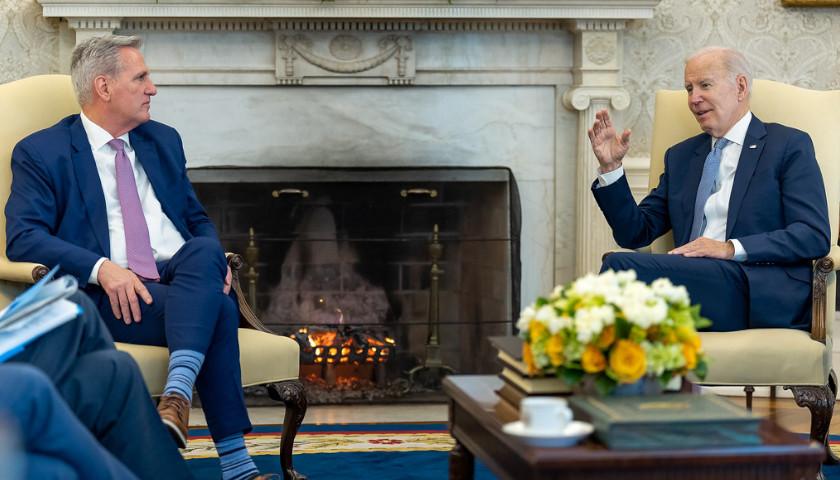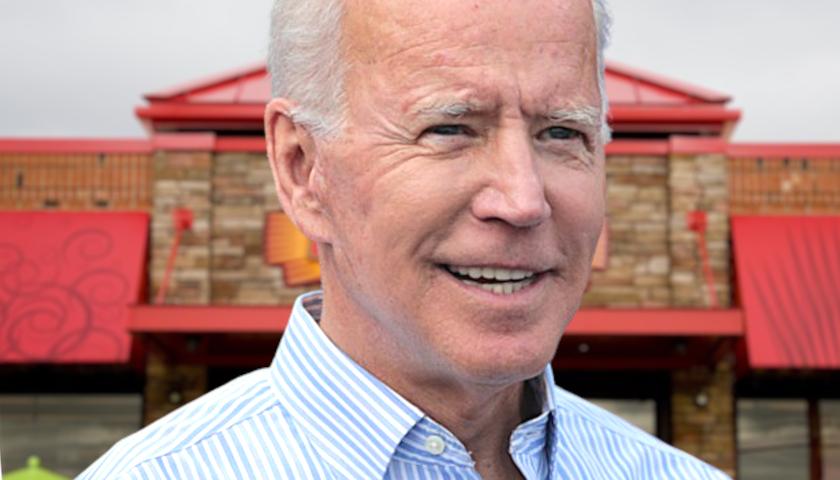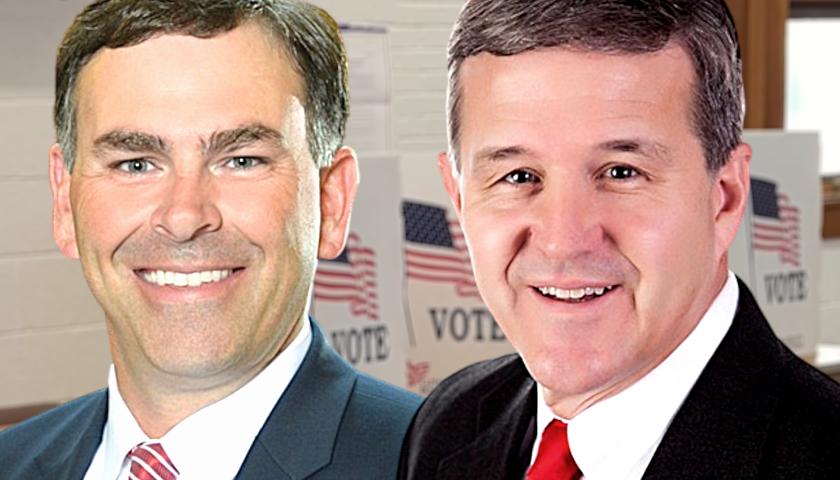by Nicholas Ballasy
The debt limit deal struck late Saturday between House Speaker Kevin McCarthy and President Joe Biden rolls back some of Washington’s massive spending while delivering other conservative priorities like blocking new taxes and requiring some welfare recipients to work, according to a summary obtained by Just the News.
McCarthy described the deal as an “agreement in principle,” and it rolls back domestic spending to fiscal year 2022 levels while limiting “top line federal spending to 1% growth for the next 6 years.”
The debt limit would be raised by about $1.5 trillion until after the next presidential election as part of the agreement.
The outline of the deal includes clawing back tens of billions of dollars in unspent COVID-19 stimulus funds and streamlining the regulatory permitting process for energy projects with the first major reform to the National Environmental Policy Act (NEPA) since 1982, according to the House GOP document.
Most Republicans and some Democrats have complained NEPA’s red tape has been slowing energy production in America, from oil and gas drilling to new clean energy projects.
The agreement also reduces funding for the hiring of additional Internal Revenue Service agents by eliminating the fiscal year 2023 staff funding request for new agents.
It would cut $400 million from the Centers for Disease Control’s “Global Health Fund” that House GOP leaders have said sends “taxpayer money to China and billions in other programs for the largest total rescissions package in history.”
Student loan borrowers would also have to start repaying their student loan debts. Student loan payments were paused throughout the COVID-19 pandemic.
It also imposes a work requirement for some able bodied food stamp and welfare recipients, which the GOP memo boasts will “save taxpayer dollars, get Americans back to work.”
The agreement is also expected to include a formal rejection of Biden’s “proposed new tax increases, new government mandates, and new federal programs.”
The deal, which House leaders are formally referring to as the Fiscal Responsibility Act, has not been finalized yet. The House and Senate would need to pass the final agreement as formal legislation to avoid a U.S. default.
“We still have a lot of work to do. But I believe this is an agreement in principle that’s worthy of the American people,” McCarthy said. “It has historic reductions in spending, consequential reforms that will lift people out of poverty into the workforce, rein in government overreach.
“There are no new taxes, no new government programs. There’s a lot more within the bill,” he added.
Biden said the compromise “means not everyone gets what they want.”
“It is an important step forward that reduces spending while protecting critical programs for working people and growing the economy for everyone,” the president said. “And, the agreement protects my and Congressional Democrats’ key priorities and legislative accomplishments.”
– – –
Nicholas Ballasy is a reporter at Just the News. Ballasy has been breaking news for more than a decade in the nation’s capital and questioning political leaders about the most pressing issues facing the nation. Since 2008, he has interviewed former President Bill Clinton, House Speaker Nancy Pelosi, former President Donald Trump, Sen. Mitt Romney, Sen. Bernie Sanders, Sen. John McCain, former Secretary of State Hillary Clinton, former Vice President Al Gore, former House Speaker Newt Gingrich and more.
Photo “Kevin McCarthy and Joe Biden” by The White House.





